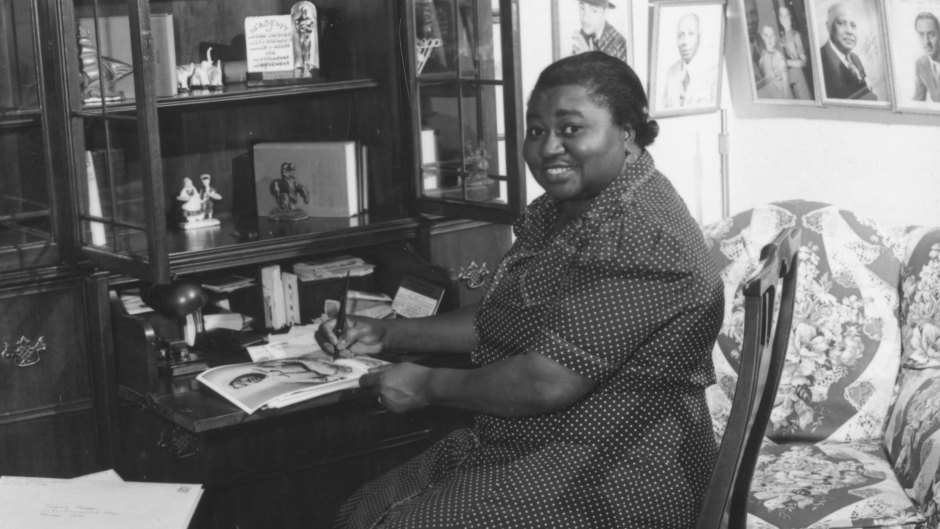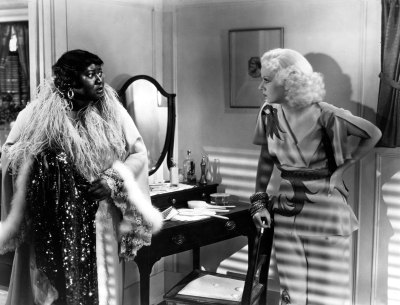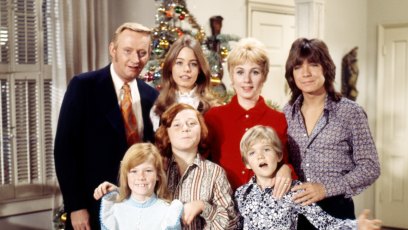
Kobal/Shutterstock
Inside ‘Gone With the Wind’ Star Hattie McDaniel’s Trailblazing Career: ‘She Knew That Would Be Her Life’
During auditions for Gone With the Wind, the competition for the role of Mammy was almost as fierce as the one to play Scarlett O’Hara. Many applied — first lady Eleanor Roosevelt even wrote to ask that the role go to her maid — but Hattie McDaniel made a smart move. She arrived wearing a maid’s uniform and insisted that Mammy not speak in dialect. Her sassy, savvy performance won over producer David O. Selznick, who canceled the rest of the auditions.

As it was for the other actors who starred in the Civil War epic, Gone With the Wind would become Hattie’s crowning achievement. Her portrayal of Scarlett’s wise and affectionate confidante made her the first African American to ever win an Academy Award and would blaze a path for other actors of color.
Hattie, the child of a Civil War veteran, grew up singing during her childhood in Wichita, Kansas, and Denver. “She said her mother would pay her to stop singing,” says Susan Goldman Rubin, author of the upcoming The Women Who Built Hollywood: 12 Trailblazers. “At 15, she won a national radio contest for reciting a poem. When she heard the applause, she knew that would be her life.”
It wasn’t an easy road. Hattie, who would marry four times, lost her first husband and the love of her life, pianist Howard Hickman, to pneumonia. Her other marriages never survived beyond a few years, and she was unable to have children.
In between showbiz gigs, she worked as a domestic, as she had done with her mother since childhood. “She once took a job as a bathroom attendant at an inn that had entertainment,” says Rubin. “One night the singer was sick. Hattie went on and performed ‘St. Louis Blues.’ She was such a hit they hired her on the spot.”
In 1931, Hattie moved to California, where she played a succession of maid roles opposite Mae West, Shirley Temple, Jean Harlow, Bela Lugosi, a pre-GWTW Clark Gable and more. On occasion, she even got to sing in films like 1936’s Showboat. From 1931 to 1952, she would appear in more than 300 films.
Winning the Oscar for 1939’s Gone With the Wind, changed everything — and nothing — for Hattie. Like so many acclaimed actors before and since, juicy lead roles failed to materialize after her historic win. She also continued to deal with the racial prejudice that kept her from sitting at the same table as her white GWTW costars on Oscar night.
In 1949, Hattie and other Black residents of LA’s West Adams neighborhood were sued by some white neighbors who claimed a 1902 restriction on non-Caucasian people owning property was still valid. “The judge threw the whole case out,” says Rubin.
On the other side, Hattie also became a lightning rod for the Black activists who insisted she should stop playing domestic roles on TV and in films. “What do you want me to do?” Hattie asked. “Play a glamour girl and sit on Clark Gable’s knee? ” She persevered, and even starred in her own radio and TV series, Beulah, before her cancer death in 1952 at age 59.
At the 2010 Academy Awards, Mo’Nique wore gardenias in her hair, just as Hattie did in 1940, to accept the Best Supporting Actress award for Precious. “I want to thank Ms. Hattie McDaniel for enduring all that she had to,” Mo’Nique said from the podium, “so that I would not have to.”








































